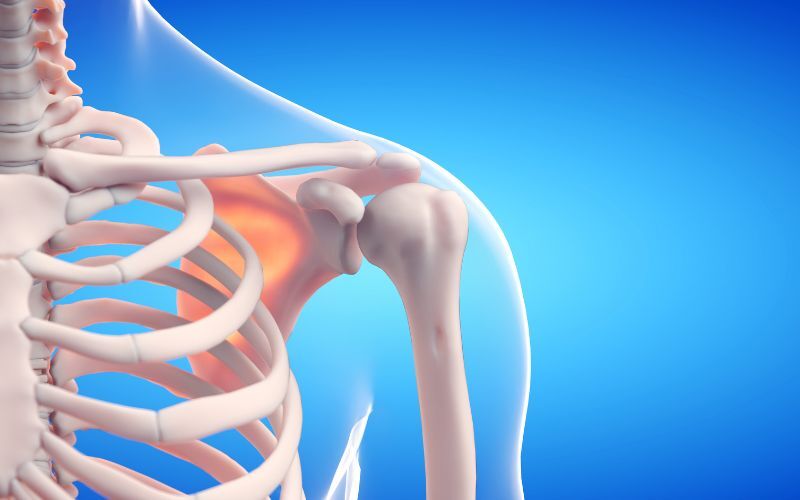Why Is Calcium the Building Block of Bones?
23rd Jul 2025
Calcium is one of the most vital minerals in the body, and it's absolutely necessary for maintaining healthy, strong bones. Calcium continues to strengthen and maintain the framework and function of the skeleton throughout childhood and well into old age. Without sufficient calcium, bones become thin and brittle and are likely to fracture and develop osteoporosis.
In this article, we will discuss the significance of calcium in maintaining bone health, the amount needed at every stage of life, the symptoms of calcium deficiency, food sources, and the particular advantages it confers to bones.
Support bone strength with premium CAL-MAG Liquid.
Why Is Calcium referred to as the Building Block of Bones?
Calcium is sometimes called the "building block of bones" because it contributes to a large percentage of our bone mass. 99% of the body's calcium is located in bones and teeth. It plays a structural role, giving hardness and density that maintain bones strong and able to withstand resiliency.
Without adequate calcium, the body begins to withdraw it from the bones to sustain essential functions, such as muscle contractions and nerve transmission, which can result in bone softening. That's why a regular calcium supply is essential throughout life.
Recommended Daily Calcium Intake
The amount of calcium your body needs varies by age, gender, and life stage. Here is a quick reference table showing the recommended daily intake in milligrams (mg):
|
Life Stage Group |
Recommended Daily Calcium Intake |
|
Females and males 9 to 18 years |
1,300 mg |
|
Women and men aged 19 to 50 years |
1,000 mg |
|
Women 51 to 70 years |
1,200 mg |
|
Men 51 to 70 years |
1,000 mg |
|
Women and men > 70 years |
1,200 mg |
|
Pregnant or nursing women 14 to 18 years |
1,300 mg |
|
Pregnant or nursing women 19 to 50 years |
1,000 mg |
These values are based on the recommendations from leading health organizations and are crucial for maintaining strong bones and overall health.
Symptoms of Calcium Deficiency
A calcium deficiency, or hypocalcemia, can lead to several health conditions, most of which impact bone strength and muscular function. These are a few typical symptoms that could suggest you are not receiving sufficient calcium:

- Muscle spasms and cramps
- Numbness and tingling fingers and toes
- Brittle or weak nails
- Fatigue and lethargy
- Bone frequent fractures
- Lack of appetite
- Abnormal heartbeat
- Trouble sleeping
Dietary Sources of Calcium
Obtaining sufficient calcium from your diet is the most effective way to maintain healthy bones and teeth. Many foods are rich in calcium, and incorporating a variety of them into your meals can help you meet your daily needs. Here are some excellent sources:
Dairy Foods
- Milk (whole, low-fat, or skim)
- Yogurt
- Cheese (cheddar, mozzarella, cottage cheese)
- Leafy Green Vegetables
- Kale
- Broccoli
- Spinach (note: has oxalates that can impair calcium absorption)
Fortified Foods
- Fortified plant milk (almond, soy, oat)
- Fortified cereals and orange juice
- Tofu prepared with calcium sulfate
Other Sources
- Sardines and canned salmon (with bones)
- Almonds
- Sesame seeds
- Figs
- White beans
Be sure to combine calcium-containing foods with foods that are sources of vitamin D, since it enhances the absorption of calcium in the body.
Benefits of Calcium for Bones
Calcium does much more than merely avoid bone diseases. It has a strong and dynamic function in molding, maintaining, and safeguarding the skeletal system. Let's find out further how calcium helps your bones.
1. Strengthens Bone Structure
Calcium offers nutrients for bones and teeth. Approximately 99% of the calcium in the body is stored within the bones and teeth, providing them with strength and structure. Proper nutrition in childhood and adolescence is crucial for achieving peak bone mass.
2. Prevents Bone Loss
As we get older, particularly beyond the age of 30, bone density will decline naturally. Calcium helps stem this tide and lowers the risk of disease that makes bones brittle and vulnerable to fractures.
3. Makes Bones Stronger
With weight-bearing exercises and a proper way of living, proper calcium consumption makes bones stronger and less susceptible to fractures, even in older age.
4. Supports Bone Repair and Remodeling
The bones remodel themselves continuously – old bone is resorbed and replaced with new bone. Calcium aids this process by offering the raw materials that are used for bone repair and renewal, particularly following injuries or stress fractures.
5. Promotes Bone Density
Calcium directly contributes to bone density, causing bones to become thicker and less susceptible to stress. This is particularly crucial for postmenopausal women and older adults who are at a higher risk of developing thinning bones.
6. Retains Skeletal Alignment
Skeletal health is not just a matter of density but also of alignment. Calcium plays a crucial role in maintaining correct bone alignment and structure, thereby preventing spinal issues, posture imbalances, and joint misalignments that can occur with aging.
7. Promotes Optimal Bone Growth in Children
During childhood and adolescence, bones grow rapidly. Adequate calcium intake during these years lays the foundation for strong bones in adulthood and minimizes the jount problem in old age and the risk of fractures in the future.
8. Aids in Healing After Fractures
Calcium plays a crucial role in the healing of broken bones. After a fracture, your body requires extra calcium to rebuild the damaged area and restore strength and functionality.
Conclusion
Calcium is vital to bone health at every stage of life. Whether you’re growing up, maintaining bone mass, or trying to prevent bone loss in later years, getting enough calcium through your diet or supplements is non-negotiable. Pair it with vitamin D, regular exercise, and healthy lifestyle habits for the best results.
Not getting enough calcium may result in weak bones, osteoporosis, and other long-term health problems. Eat smart, listen to your body, and see a healthcare professional if you have doubts about getting enough calcium.
Frequently Asked Questions
Can I take too much calcium?
Excessive calcium (typically from supplements) can lead to kidney stones and other health issues. Stay at the recommended daily amount unless a healthcare provider tells you otherwise.
Is supplement calcium as good as food calcium?
Food calcium is typically better absorbed, but supplements can make up for shortfalls if you're not getting all that you need from food sources alone.
How can I tell if I am lacking calcium?
If you experience frequent cramps, bone pain, or fatigue, your doctor can order a blood test to measure your calcium level.
What assists with calcium absorption?
Vitamin D assists with calcium absorption. Get outside in the sun and consume foods high in vitamin D, including fatty fish and fortified foods.
Are there vegan sources of calcium?
Yes, definitely! Leafy greens, almonds, fortified plant milk, tofu, and beans are good vegan-friendly sources of calcium.
Bone care is a lifelong process. Make calcium a daily habit and enjoy stronger, healthier bones for years to come.






